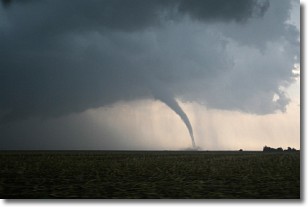Weather Alert in Texas
Dust Advisory issued June 15 at 2:17PM CDT until June 15 at 4:15PM CDT by NWS Midland/Odessa TX
AREAS AFFECTED: Andrews, TX; Dawson, TX; Ector, TX; Gaines, TX; Martin, TX; Midland, TX
DESCRIPTION: The National Weather Service in Midland has issued a * Dust Advisory for... Ector County in western Texas... Andrews County in western Texas... Midland County in western Texas... Southern Gaines County in western Texas... Martin County in western Texas... Southern Dawson County in western Texas... * Until 415 PM CDT. * At 217 PM CDT, a wall of dust was along a line extending from 8 miles south of Greenwood to 16 miles northwest of Midland to 6 miles east of Gaines County Airport, moving west at 25 mph. HAZARD...Less than two miles visibility with strong wind in excess of 40 mph. SOURCE...Public. IMPACT...Hazardous travel. * This includes Interstate 20 between mile markers 102 and 157. Locations impacted include... Midland, Odessa, Andrews, Lamesa, Seminole, Greenwood, Stanton, Goldsmith, Lenorah, Midland International Air and Space Port, Gaines County Airport, West Odessa, Lamesa Municipal Airport, Los Ybanez, Cotton Flat, Patricia, Midland Airpark, McKenzie Lake, Penwell, and Stanton Municipal Aiport.
INSTRUCTION: Blowing dust brings reduced visibility, leading to dangerous driving conditions. If driving, avoid blowing dust if possible. If caught in dense blowing dust, pull off the road, turn off your lights and keep your foot off the brake.
Want more detail? Get the Complete 7 Day and Night Detailed Forecast!
Current U.S. National Radar--Current
The Current National Weather Radar is shown below with a UTC Time (subtract 5 hours from UTC to get Eastern Time).

National Weather Forecast--Current
The Current National Weather Forecast and National Weather Map are shown below.

National Weather Forecast for Tomorrow
Tomorrow National Weather Forecast and Tomorrow National Weather Map are show below.

North America Water Vapor (Moisture)
This map shows recent moisture content over North America. Bright and colored areas show high moisture (ie, clouds); brown indicates very little moisture present; black indicates no moisture.

Weather Topic: What are Wall Clouds?
Home - Education - Cloud Types - Wall Clouds
 Next Topic: Altocumulus Clouds
Next Topic: Altocumulus Clouds
A wall cloud forms underneath the base of a cumulonimbus cloud,
and can be a hotbed for deadly tornadoes.
Wall clouds are formed by air flowing into the cumulonimbus clouds, which can
result in the wall cloud descending from the base of the cumulonimbus cloud, or
rising fractus clouds which join to the base of the storm cloud as the wall cloud
takes shape.
Wall clouds can be very large, and in the Northern Hemisphere they generally
form at the southern edge of cumulonimbus clouds.
Next Topic: Altocumulus Clouds
Weather Topic: What are Altostratus Clouds?
Home - Education - Cloud Types - Altostratus Clouds
 Next Topic: Cirrocumulus Clouds
Next Topic: Cirrocumulus Clouds
Altostratus clouds form at mid to high-level altitudes
(between 2 and 7 km) and are created by a warm, stable air mass which causes
water vapor
to condense as it rise through the atmosphere. Usually altostratus clouds are
featureless sheets characterized by a uniform color.
In some cases, wind punching through the cloud formation may give it a waved
appearance, called altostratus undulatus. Altostratus clouds
are commonly seen with other cloud formations accompanying them.
Next Topic: Cirrocumulus Clouds
Current conditions powered by WeatherAPI.com




